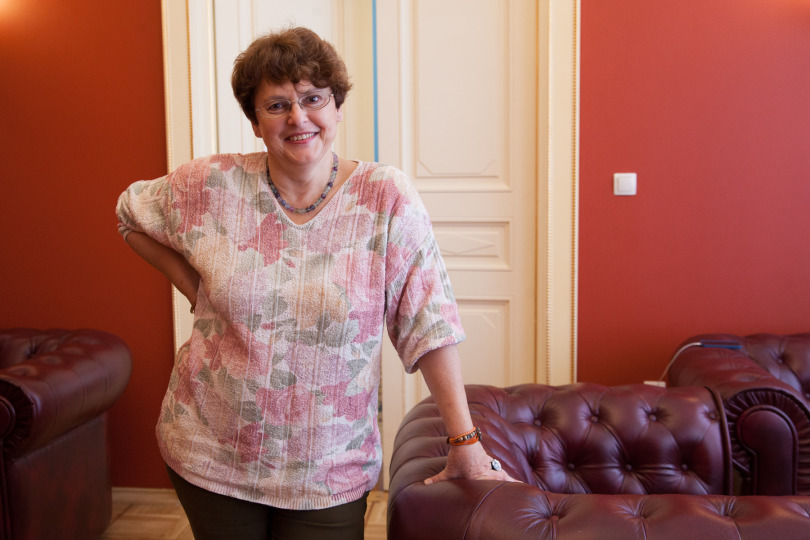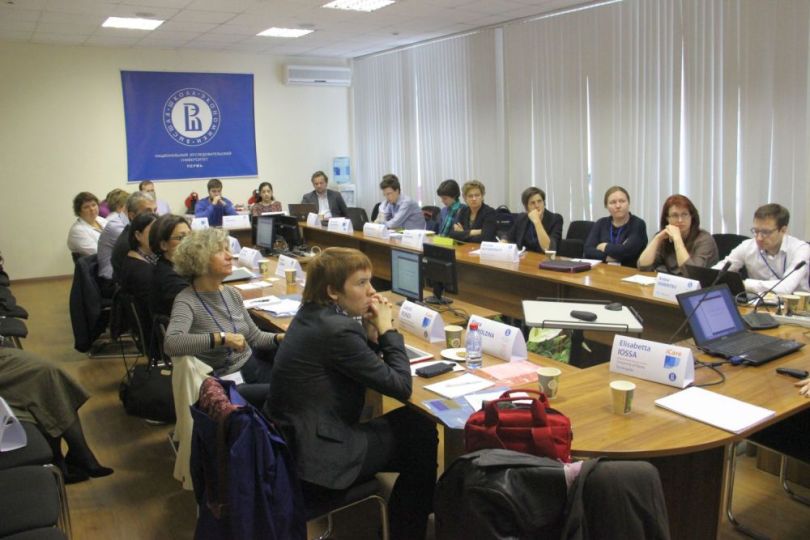Children of Business Moguls Expect to Retire Early
Ambiguous attitudes held by the heirs of Russian moguls may affect the future of the country's big businesses. On one hand, the children of wealthy Russian business owners have an excellent headstart – they are well-educated and generally share their parents' values. Yet on the other hand, they are not likely to become selfless workaholics. Instead, they tend to be more hedonistic than their parents and less inclined to devote their entire life to building the family business. Most Russian business heirs expect to retire early and switch to hobbies, recreation and entertainment in their mid-life. Elena Rozhdestvenskaya, professor of the HSE Faculty of Social Sciences, is the first Russian researcher to study the mindsets of heirs of biggest Russian fortunes.
Moscow Urban Forum 2015: Housing Policy, Internet Services, and Dreams of a New Moscow
On October 16-17, the annual Moscow Urban Forum will take place in the Moscow Manege. For the first time ever, this year's event is being organised by the HSE Graduate School of Urban Studies and Planning, which proposed a new format for the event.
Post-Soviet Authoritarian Regimes Ineffective
More than twenty years after the collapse of the socialist bloc, virtually none of the post-communist countries have attained the level of socioeconomic development characteristic of advanced democracies. Likewise, none of the post-communist countries have emerged as successful autocracies with high-quality public institutions, such as those found in Singapore or Oman. Professor Andrei Melville, Dean of the HSE Faculty of Social Sciences, and Mikhail Mironyuk, Associate Professor of the HSE School of Political Science, examine possible reasons why it is so.
Companies Supported by Government More Optimistic about Investment Climate
Over the past three years, the business climate in Russia has improved for companies with a long planning horizon and for those receiving government support. State-owned companies, however, have been worse off after losing their privileges and facing a level playing field, according to Andrei Yakovlev, director of the HSE Institute for Industrial and Market Studies, Irina Levina, research fellow at the same Institute, and Anastasia Kazun, postgraduate student at the HSE Faculty of Social Sciences.
HSE Academic Wins Prize of Dinasty Foundation
Stalin: Zhizn odnovo vozhdya or Stalin: New Biography of A Dictator by Oleg Khlevniuk, Leading Research Fellow at the International Centre for the History and Sociology of WWII and Its Consequences, has won the Prosvetitel [Enlightener] 2015 Prize for Biography.

Understanding Russian Communication: Online and in Private
How Russians think bears little resemblance to Germans’ attention to detail or American cheerfulness. The difference can be explained, at least in part, by looking at linguistic peculiarities. A Massive Open Online Course (MOOC) launched by HSE called ‘Understanding Russians: Contexts of Intercultural Communication’ investigates cases when basic Russian cultural values show up through linguistic choices, which may influence the way people act. The nine-week course was first offered in 2014 and was tremendously successful. It will run for the second time starting October 12, 2015. Mira Bergelson, professor in the Faculty of Humanities at HSE and the author of the course, shared the core principles of making contact with people who don’t smile on the street but who may become your best friends after just a few meetings.
Speech Development Can Save from Poverty
Coming from a low-income, uneducated family can affect a child’s language skills, resulting in underdeveloped, ungrammatical speech, which hinders academic performance and limits one’s chances of success in life. However, parents can help a child offset the effects of a negative family background, according to Kirill Maslinsky, research fellow at the Laboratory of Sociology in Education and Science, HSE campus in St. Petersburg.

Public-private Partnership: Comparing the Russian and the European Experience
A research seminar on ‘Public-private partnership: design and discussion’ took place at the HSE campus in Perm. The event was organized by the Division of Public-Private Partnership Studies. Russian, as well as international researchers from Italy, Sweden, and Great Britain, spoke on topical problems of public-private partnership.
Predictions for the 2015 Nobel Prize
At the beginning of ‘Nobel Week,’ HSE Professor Konstantin Sonin gave his traditional prediction on his blog, forecasting who might win this year’s Nobel Prize in Economics. The winner will be determined on October 12.
One Year of Science and Technology Studies Fieldwork in HSE
Ian Lowrie, visiting PhD-student from Rice University spent last academic year at HSE doing anthropology of Russian Science & Technology.


Deadline for applications to present academic reports - January 20, 2025